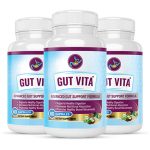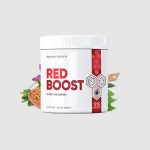Human breast milk is better than infant formula as a source of nutrition for babies, according to a new policy statement released by the American Academy of Pediatrics (AAP).
Writing in the December issue of the journal Pediatrics, the AAP's Work Group on Breastfeeding now recommends breast milk as the “preferred” source of nutrition for almost all babies for at least the first year of life and “for as long as mutually desired” by mother and baby. This amends the group's recommendation for 6 to 12 months of breastfeeding which was issued in its 1982 policy statement.
“Extensive research, especially in recent years, documents diverse and compelling advantages to infants, mothers, families, and society from breastfeeding and the use of human milk in infant feeding,” the group states. “These include health, nutritional, immunologic, developmental, psychological, social, economic, and environmental benefits.”
The statement cites research evidence from developed countries showing that breastfeeding decreases the incidence and severity of diarrhea, middle ear infections, lower respiratory tract infection, bacterial meningitis, and other conditions in babies. Breastfeeding also may offer protection against sudden infant death syndrome, Insulin-dependent diabetes, and some allergic and chronic digestive diseases.
For mothers, nursing a baby can reduce postpartum bleeding. Breastfeeding may also lower the mother's risk of ovarian and premenopausal breast cancer.
“In addition to individual health benefits, breastfeeding provides significant social and economic benefits to the nation, including reduced health care costs and reduced employee absenteeism for care attributable to child illness.”
According to the new policy statement:
– Newborns should be fed whenever they show signs of hunger, which include increased alertness, activity, and mouthing. Crying is considered a late-stage indicator of hunger.
– Breastfeeding is recommended during the first hour following delivery, rather than beginning hours after birth as was advised previously by the AAP.
– There should be a formal evaluation of breastfeeding performance by a trained observer during the first 24 to 48 hours after delivery and at a follow-up visit 48 to 72 hours after mother and baby are discharged. The previous AAP statement advised a follow-up visit within two weeks of discharge.
– No water, glucose (sugar) water, or formula should be given to breastfeeding newborns unless medically indicated.
The AAP also encourages mothers to provide expressed breast milk for their babies when nursing them directly is not possible.
SOURCE: Pediatrics (1997;100(6):1035-1039)









